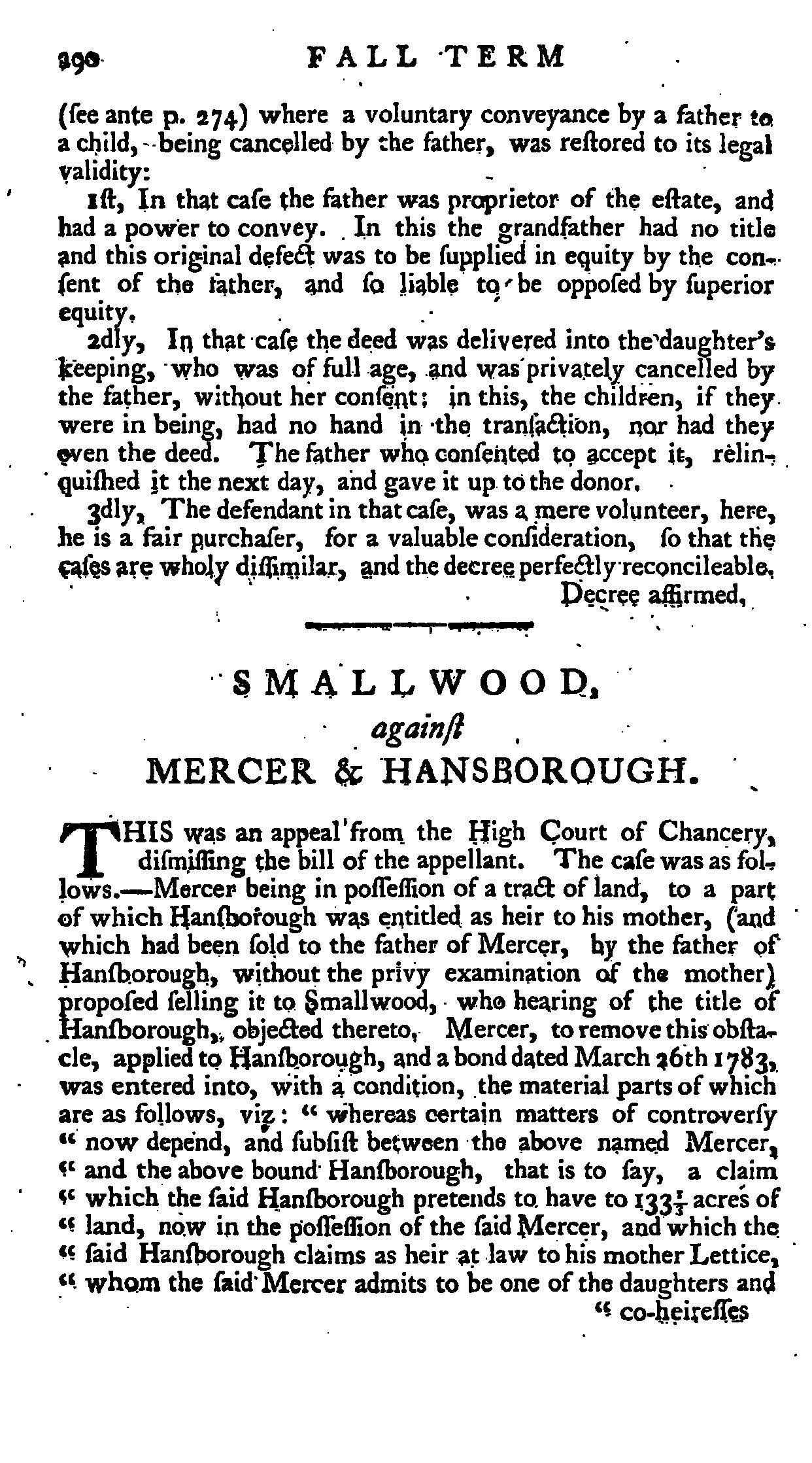Smallwood v. Mercer

Smallwood v. Mercer', 1 Va. (1 Wash.) 290 (1794),[1] was a land dispute case.
Background
Mercer proposed selling a tract of land to Smallwood. However, there was a small problem. Hansborough claimed he inherited the same portion of the land from his mother. Hansborough argued that his father sold the land to Mercer’s father without privy examination of his mother. To fix the problem, Mercer entered into a contract agreement with Hansborough to determine who possessed the land through arbitration. After the agreement was finalized, Mercer showed it to Smallwood so that he would continue to purchase the land. However,when one of the arbitrators named in the contract refused to give his opinion because he considered himself to be biased, Mercer agreed to pay Hansborough with the money he would receive from Smallwood when he bought the land. Not long after Smallwood purchased the property, Hansborough brought an action of ejectment against Smallwood. Because of this, Smallwood sued both Mercer and Hansborough in the High Court of Chancery.
The Court's Decision
Chancellor Wythe dismissed the case. The Court of Appeals affirmed stating that the question was whether Wythe must compel Hansborough to convey his land based on the negations between Mercer and Smallwood. The Court reasoned that since Smallwood was no better off or worse than Mercer’s past situation, Wythe was not obligated to compel such an agreement.
See also
References
- ↑ Bushrod Washington, Reports of Cases Argued and Determined in the Court of Appeals of Virginia,(Richmond: T. Nicolson, 1798), 1:290.